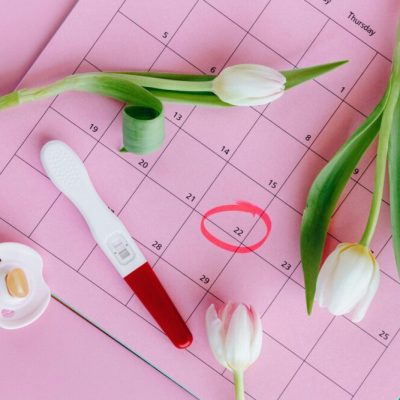
What is Anti Mullerian Hormone AMH?
AMH is a hormone produced by the granulosa cells of the early developing antral follicles (the “cysts” that contain eggs). These are the immature eggs that wake up from their dormant state and develop into mature eggs. As a woman runs out of eggs, the number of these small antral follicles decline in number and as a result the serum Anti-Mullerian hormone falls. This is why serum Anti-Mullerian hormone testing is a good estimate of residual egg number.
What is the significance of my AMH level?
AMH levels decrease with patients age and so the results must be interpreted by a clinician. To further confuse the issue different laboratories use different scales to measure AMH and great care must be taken to interpret the result.
However in general AMH can be elevated and this is most commonly seen in patients with Polycystic ovarian syndrome, AMH can be in a normal range which is reassuring or it can be low indicating a “diminished ovarian reserve” DOR which may be associated with a delay in conception and potentially poorer response to fertility treatment.
Even very low / undetectable levels of AMH can be associated with successful pregnancy outcomes albeit with reduced chances(1). Indeed over the very short term ( 3-6 months) there is little evidence that a low AMH will have a significant effect on natural pregnancy rates.
Does low AMH mean I am nearing the Menopause?
Whilst it is known that levels of AMH fall from a peak at around 20-25 years of age to levels that are undetectable at the menopause, and that for women with low levels of AMH they will become menopausal sooner than ladies with higher AMH levels it is not yet possible to give an accurate estimate of the likely time left to menopause.(2)
Why Have I been advised to have my AMH Checked?
AMH levels are useful for clinicians and patients to assess the potential reserve off eggs as well as indicate the likely response to fertility treatment. The main benefits to patients for AMH testing are.
- Patients with low AMH levels would be advised to avoid delaying starting a family (or consider freezing eggs) as the window for fertility may be reduced.
- The level of AMH is a good guide to potential response to medication used in fertility treatment and thus medication can be adjusted to reduce the chances of cancelling or abandoning fertility treatment either due to not producing enough eggs or avoiding the risk of ovarian hyperstimulation (OHSS)
- Patients with either very low AMH levels or levels low for their age may be advised to consider supplementation with a nutritional supplement DHEA.
- Patients with undetectable levels of AMH may be advised to seek alternative fertility treatments such as egg donation ( it may also be that very low levels of AMH are a cause of a failure to conceive)
Does this test have to be done at any particular time of my menstrual cycle?
Unlike other blood tests to assess fertility, Anti-Mullerian hormone levels fluctuate very little during the menstrual cycle and therefore can be taken at anytime during the menstrual cycle. The test can also be taken if you are using hormonal contraception or treatment for endometriosis. AMH levels have also been shown to be very stable from cycle to cycle and so we do not recommend retesting within 2 years unless indicated by your doctor (ie after surgery on your ovaries)
Can anything change my AMH levels/ what options do I have?
Although there is some evidence that low AMH levels can be increased slightly with DHEA, it is inappropriate to repeat the test after taking DHEA or within 2 years. If your result is low you will be advised as to the options for treatment by your clinician.
Are there any other issues with Low AMH levels?
There is a large amount of evidence that a low level of AMH is associated with a lower number of eggs remaining in the ovary and that this may have an effect on fertility. There is less reliable evidence that low AMH has an effect on the quality off the remaining eggs with some studies showing no difference in live births after IVF and other studies showing a reduction in fertilisation off eggs, greater miscarriage risk and lower pregnancy rates. If these effects exist they may be improved with the addition of DHEA.
Are there any other issues with Low AMH levels?
There is a large amount of evidence that a low level of AMH is associated with a lower number of eggs remaining in the ovary and that this may have an effect on fertility. There is less reliable evidence that low AMH has an effect on the quality off the remaining eggs with some studies showing no difference in live births after IVF and other studies showing a reduction in fertilisation off eggs, greater miscarriage risk and lower pregnancy rates. If these effects exist they may be improved with the addition of DHEA.
References
-
Live birth chances in women with extremely low-serum anti-Mullerian hormone levels. Weghofer A, Dietrich W, Barad DH, Gleicher N.et al, Hum Reprod 2011;26(7):1905-9.
-
Anti-mullerian hormones a predictor of time to menopause in late reproductive age women.Freeman EW, Sammel MD, Lin H, Gracia CR. J Clin Endocrinol Metab. 2012 May;97(5):1673-80.
-
Improvement in diminished ovarian reserve after dehydroepiandrosterone supplementation.Gleicher N, Weghofer A, Barad DH.Reprod Biomed Online. 2010 Sep;21(3):360-5



